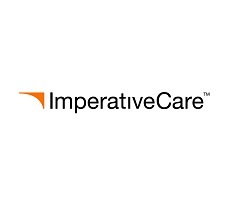 Imperative Care has announced today that it will fund an investigator-initiated, multicentre randomised controlled clinical trial comparing aspiration thrombectomy with the Zoom stroke system plus best medical treatment versus best medical treatment alone. The study will examine treatments in patients suffering from acute ischaemic stroke due to a primary occlusion of the M2 segment of the middle cerebral artery (MCA) within eight hours of symptom onset.
Imperative Care has announced today that it will fund an investigator-initiated, multicentre randomised controlled clinical trial comparing aspiration thrombectomy with the Zoom stroke system plus best medical treatment versus best medical treatment alone. The study will examine treatments in patients suffering from acute ischaemic stroke due to a primary occlusion of the M2 segment of the middle cerebral artery (MCA) within eight hours of symptom onset.
The trial will enrol patients, randomising them 1:1, and is set to be conducted independently through an academic research organisation. Its primary efficacy endpoint will measure clinical outcomes using the 90-day modified Rankin scale (mRS) score, which reflects a patient’s level of disability post-stroke.
Patients randomised to the arm evaluating the Zoom stroke system plus best medical treatment will be treated with dual aspiration using the continuous dual aspiration technique (CDAT), which applies continuous vacuum on two Zoom catheters simultaneously, incorporating Imperative’s novel DuoPort technology.
“Recent randomised controlled trials, which have entailed the use of stent retrievers, have raised questions about the clinical benefit of mechanical thrombectomy in patients with M2 occlusions,” said Adam Arthur (Semmes-Murphey Clinic, Memphis, USA), principal investigator for the study. “This is the first trial designed to look at an aspiration approach specifically for M2 occlusions and will help us better understand the potential impact of aspiration thrombectomy on these patients. I commend Imperative Care for taking a bold step to fund this independent trial that may help the field answer important clinical questions and support physicians in their evidence-based decision-making when treating their stroke patients.”
“We believe it is our responsibility to support the launch of independent randomised controlled trials that rigorously evaluate treatment approaches with the ultimate goal of improving patient outcomes,” added Fred Khosravi, chairman and chief executive officer (CEO) of Imperative. “This investment reflects our deep commitment to clinical evidence and innovation. We are grateful to the leading clinicians participating in this trial, and we look forward to the impact these findings will ultimately have on patients.”












